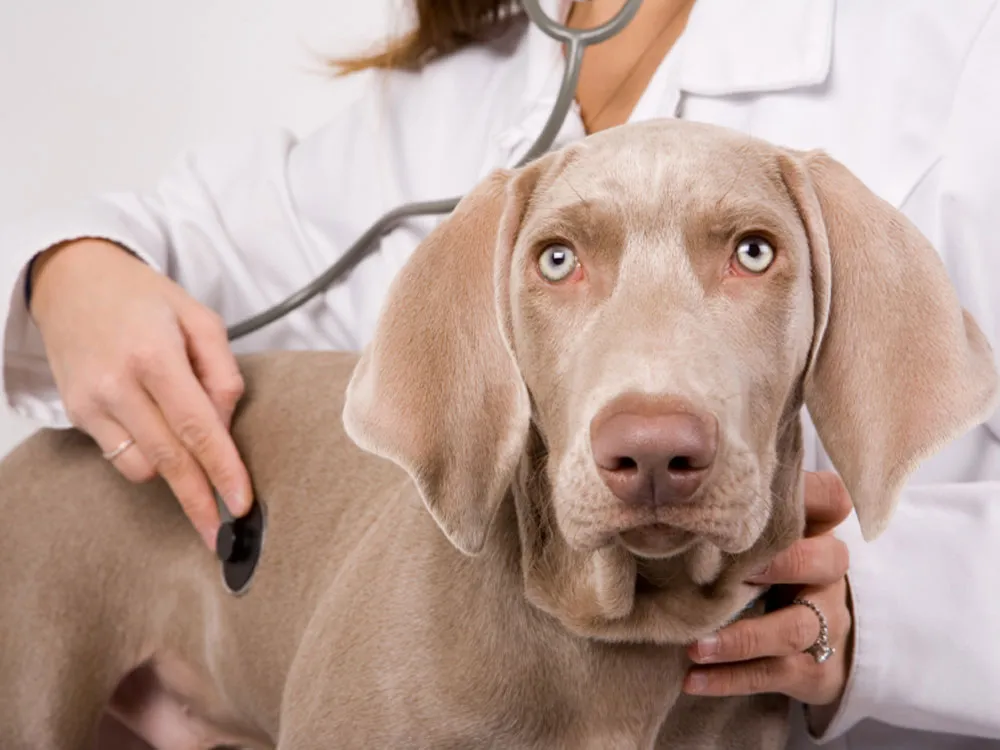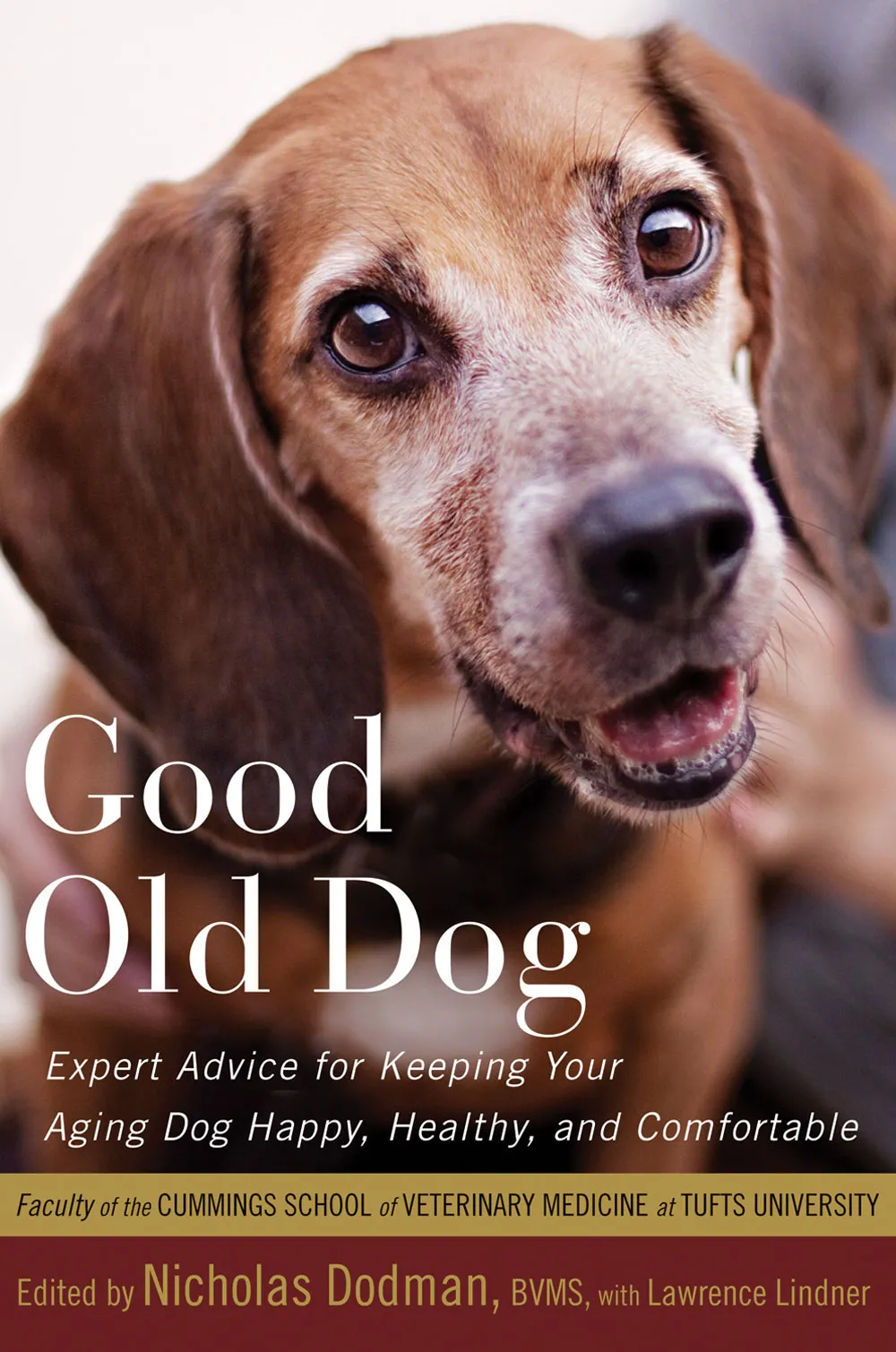As our beloved canine companions enter their golden years, the responsibilities of pet ownership evolve. Owners of aging dogs frequently face new challenges, from managing canine cognitive dysfunction (often likened to human Alzheimer’s) and incontinence to making difficult end-of-life care decisions. Navigating these changes requires understanding, patience, and expert advice. Fortunately, renowned veterinary behaviorist Dr. Nicholas Dodman, head of the Animal Behavior department at Tufts Cummings School of Veterinary Medicine, offers invaluable insights. With decades of experience working with aging dogs, Dr. Dodman emphasizes that old age is not a disease in itself, but a unique stage of life that both pets and owners must learn to navigate together. He collaborated with other Tufts vets and writer Lawrence Linder on the comprehensive guide, Good Old Dog: Expert Advice for Keeping Your Aging Dog Healthy, Happy and Comfortable, providing a roadmap for owners during this crucial period. Understanding what age constitutes a senior dog is the first step in providing appropriate care.
Essential Care for Aging Canine Companions
Caring for an elderly dog means being attuned to their changing physical and cognitive needs. Dr. Dodman highlights several fundamental aspects owners must consider to ensure their senior dog remains comfortable and healthy.
Adapting to Temperature Sensitivity
One of the basic yet crucial considerations for older pets is their increased sensitivity to extreme temperatures. Dr. Dodman explains that aging dogs, much like older people, become less able to thermoregulate due to metabolic changes. This makes them more vulnerable to both freezing cold and intense heat. Prolonged exposure to cold weather without adequate protection can lead to discomfort or even hypothermia, while hot days can cause dehydration and heatstroke, especially if they are left outside without shade or water. Owners must take proactive steps, such as providing blankets or coats in cooler climates and ensuring their dogs have access to cool, shaded areas and fresh water during warmer periods. Never leave an elderly dog tethered in the yard on an extremely hot day, as this can quickly become a dangerous situation.
 Elderly dog resting comfortably, wrapped in a warm blanket
Elderly dog resting comfortably, wrapped in a warm blanket
Tailoring Exercise and Diet
As dogs age, their physical capabilities naturally diminish. Heart and lung function can deteriorate, meaning the vigorous exercise of their youth is no longer appropriate or safe. Dr. Dodman recommends moderating exercise for older dogs, focusing on gentle, consistent activity rather than strenuous bursts. Regular, short walks can help maintain muscle mass, joint flexibility, and mental stimulation without overtaxing their systems.
Dietary needs also shift significantly. While many dog food brands offer products labeled as “senior diets,” Dr. Dodman warns owners to approach these with caution. Unlike puppy food, which has specific legal requirements, there’s no real legal definition or standard for what constitutes a “senior” dog food. Consequently, the composition of these products can be highly variable. It is paramount for owners to consult with their veterinarian before introducing any new food into their pet’s diet to ensure it meets their specific nutritional requirements.
Additionally, managing an elderly dog’s weight is critical. Overweight senior dogs experience increased stress on their joints, exacerbating conditions like arthritis. Dr. Dodman notes that reducing an overweight dog to their ideal “fighting weight” can offer significant relief from joint pain and improve their overall quality of life. While many owners enjoy sharing table scraps, moderation is key. Dog food is carefully formulated to provide a balanced intake of carbohydrates, fats, proteins, and essential additives. Excessive human food can unbalance this carefully designed diet and lead to unwanted begging behaviors.
Addressing Common Senior Dog Health Issues
The aging process often brings with it an increased susceptibility to various health conditions. Owners of elderly dogs should be aware of these common ailments and work closely with their veterinarian for diagnosis and management.
One of the most frequent issues is canine arthritis, which often stems from conditions present when the dog was younger, such as hip dysplasia. Hip dysplasia, where the hip joint’s ball and socket don’t fit together properly, leads to “corroded” osteoarthritic changes over the years, causing progressively more pain. Early detection and management are crucial for maintaining mobility and comfort.
Another significant concern is canine cognitive dysfunction (CCD), an age-related neurobehavioral syndrome analogous to Alzheimer’s disease in humans. Diagnosing CCD involves observing a specific constellation of signs not attributable to other physical diseases. Resources like charts on reputable animal health websites can help owners track changes in their dog’s behavior. If the number of observed signs increases over time, it strongly suggests the dog is on the “Alzheimer’s track.”
Cancer is also a prevalent and heartbreaking reality for many senior dogs, affecting half of all dogs over 10 years old. Deciding whether to pursue aggressive treatment for cancer is a deeply personal and often agonizing choice for owners. Factors to consider include the financial cost of treatment, the dog’s potential quality of life post-treatment, the pain associated with therapies, and the realistic extension of life. Dr. Dodman advises a balanced approach: if a non-invasive, affordable procedure offers six months of quality life, it’s worth considering. However, he questions the wisdom of “dragging out an existence” through step-by-step treatments when a dog is in chronic pain with little hope of recovery.
 Good Old Dog book cover featuring a friendly older dog
Good Old Dog book cover featuring a friendly older dog
Compassionate End-of-Life Care and Decisions
Perhaps the most difficult aspect of Taking Care Of Elderly Dogs is recognizing when it’s time to say goodbye. This decision requires careful observation and open communication with your veterinarian. Dr. Dodman emphasizes listening to what owners observe about their dog’s daily life and carefully assessing the dog’s physical and emotional state.
A key indicator is a significant decline in their quality of life. If a dog reaches a point where they appear lackluster, no longer enjoy life, stop playing or interacting, haven’t responded to therapies, and lose interest in food and social interactions, it’s a strong sign they may have “given up.” When nothing can bring back their previous joy or comfort, owners must seriously consider their pet’s quality of life. Your veterinarian can provide compassionate guidance during this challenging time, helping you make the most humane decision for your cherished companion.
Conclusion
Taking care of elderly dogs demands a thoughtful and proactive approach, recognizing that their needs are distinct from those of younger pets. From adapting to temperature sensitivities and tailoring their diet and exercise to proactively addressing common health issues like arthritis, cognitive dysfunction, and cancer, every aspect of their care requires diligence. The expert advice from veterinary professionals like Dr. Nicholas Dodman underscores the importance of close veterinary consultation for diet, managing chronic conditions, and making compassionate end-of-life decisions. By understanding and embracing the unique challenges and joys of their golden years, we can ensure our elderly dogs experience comfort, dignity, and continued companionship, truly navigating this special stage of life together. Explore more expert insights on canine health and care from Dog Care Story to empower yourself with knowledge for your beloved pet.
